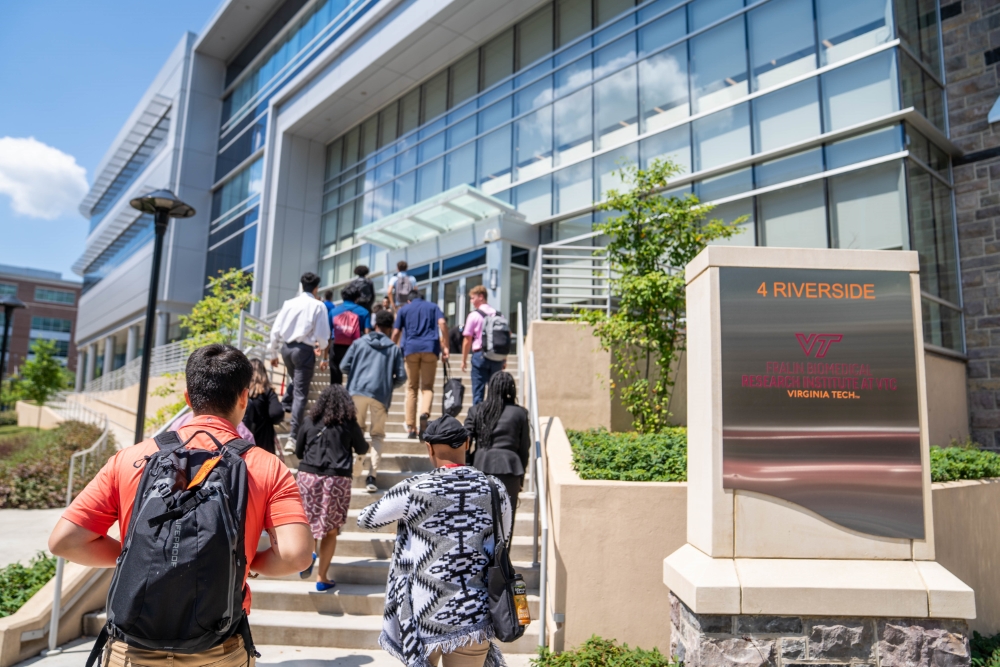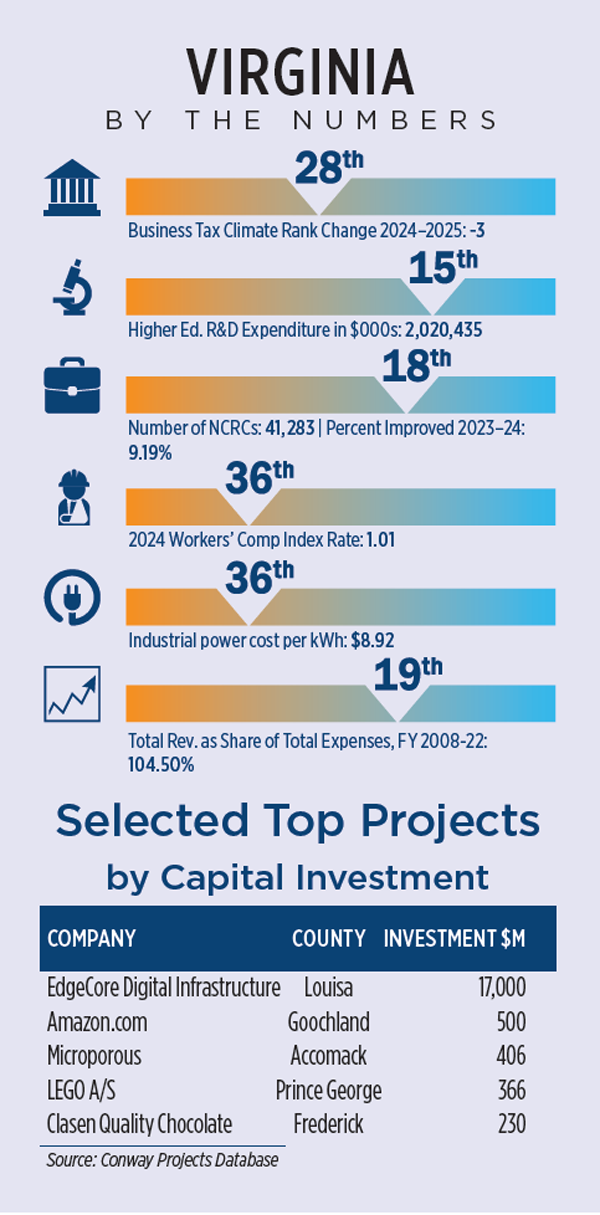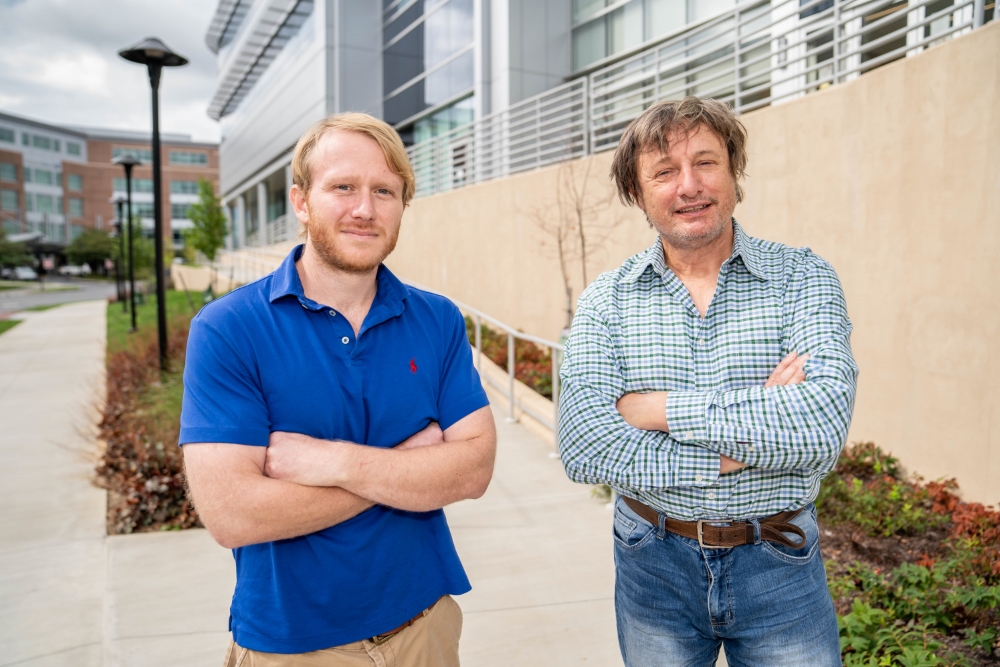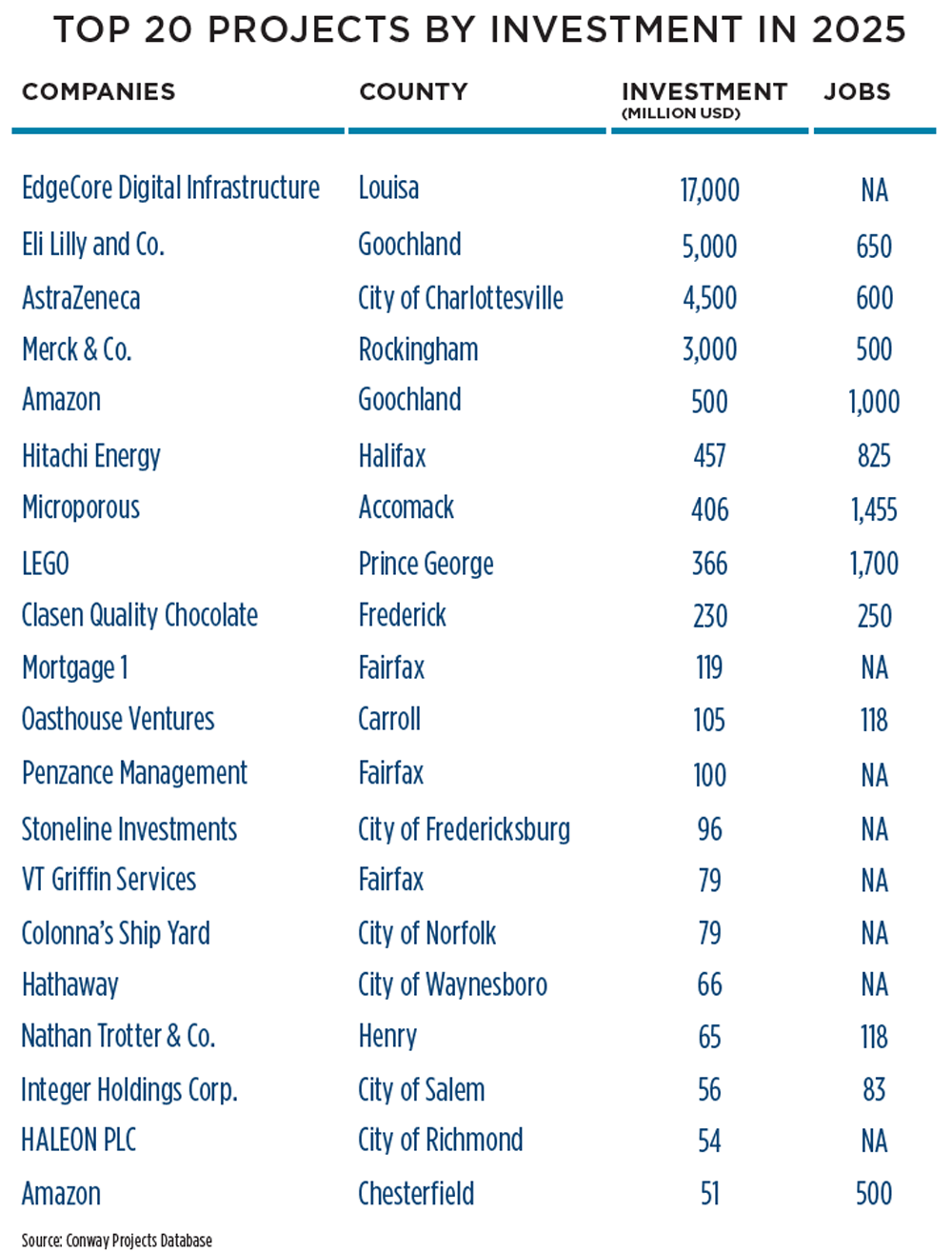Virginia is racking up some blockbuster biopharma wins in 2025, adding billions in capital investment to the more than $2.5 billion invested by life sciences companies in just the last five years. At the same time, some sector developments under way today won’t make headlines this year or next. But they’re proof positive that parts of Virginia not yet considered life sciences hubs are working to change that perception. Think Roanoke.
First, the blockbusters.
AstraZeneca announced a $4.5 billion manufacturing facility in Albemarle County that is expected to create approximately 600 direct jobs. The plant will produce drug substances for its weight management and metabolic portfolio. It’s part of the company’s $50 billion investment announced in July that will see investment in new and expanded facilities in several U.S. locations.
“With our $4.5 billion investment in Virginia, the largest in AstraZeneca’s history, we are not only building a state-of-the-art manufacturing facility but also driving life sciences innovation and economic growth,” said Pascal Soriot, Chief Executive Officer, AstraZeneca, announcing the project.
In October, Merck began construction on its $3 billion, 400,000-sq.-ft. pharmaceutical manufacturing facility in Elkton, in the Shenandoah Valley east of Interstate 81, where it has operated for more than eight decades. The company says it is building “a state-of-the-art pharmaceutical Center of Excellence that will include both Active Pharmaceutical Ingredient and Drug Product investment supporting small molecule manufacturing and testing and will potentially create more than 500 full-time roles as well as 8,000 construction jobs.”

Virginia Tech Carilion Health Sciences and Technology Campus, Roanoke
Photo courtesy of FBRI
Eli Lilly and Company announced plans to invest $5 billion in a manufacturing facility that will generate 650 high-wage jobs in Goochland County, northwest of Richmond. That’s up from the company’s original plans for a $2.1 billion investment, creating 468 jobs. The new site will be the company’s first dedicated, fully integrated active pharmaceutical ingredient and drug product plant for Lilly’s emerging bioconjugate platform and monoclonal antibody portfolio, according to a release. These treatments are primarily used to treat cancer but are being explored for autoimmune diseases and other conditions.

Roanoke’s First Data Center
Meanwhile, keep an eye on the Roanoke Valley in southwest Virginia, where Google recently purchased a 312-acre site at the Botetourt Center at Greenfield, a business park in Botetourt County north of Roanoke, and is expected to invest at least $1 billion in the area’s first data center. Google announced in August plans to invest $9 billion in Virginia through 2026, mainly on cloud and AI infrastructure.
“With hyperscale demand, the data center sector is having to look outside of the traditional, primary markets,” says John Hull, executive director of the Roanoke Regional Partnership. “It’s getting harder to site multiple hundreds of acres in northern Virginia given land costs there. We find ourselves in a very dynamic site selection environment as it relates to data centers.”
Hull says the Google requirement was nationally competitive and open to sites across Virginia. Why the Roanoke area?
“You can’t discount the energy part of the equation,” says Hull. “This development would represent the first data center of its size in Appalachian Power territory, and the timeframe and solution were such that it was very attractive. That solution can’t be found in that same timeframe in many areas of the country. Water and sewer infrastructure are another part of the story, and our region has rich assets and advantages in that area.”

Spencer Marsh, Chief Scientific Officer (left) and Robert Gourdie, Founder and President, Tiny Cargo Co.
Photo courtesy of FBRI
Hull says finding an improved property intended for industrial use and fully entitled/zoned for a data center in a community that is welcoming to development played an important role, too. “Google found a team that was excited to attract the sector and be willing to partner with them and compete for the investment. The local, regional and state economic development team formed a true partnership with Google’s development team and the entire company overall.”
“This area is dead set on reinvigorating the manufacturing base in Roanoke. Being on the cusp of that wave was intriguing to us.”
— Spencer Marsh, PhD, chief scientific officer, Tiny Cargo Co.
And Its First Biotech Spinoff
Circling back to Virginia’s biopharma industry, Roanoke is incubating an early spinoff from Virginia Tech’s Fralin Biomedical Research Institute at VTC. Tiny Cargo Co. has big plans for improving drug delivery, among other applications, using exosomes derived from raw cow’s milk. The Roanoke Regional Partnership worked with the company to secure a site in the city in recent months which it is outfitting with the equipment needed for exosome extraction.
“This has helped us catalyze our scale-up manufacturing, which has been very valuable to us as a startup,” says Alan Gourdie, CEO. His brother Robert Gourdie founded the company and serves as its president. “This is the first company out of the Fralin Biomedical Research Institute to commercialize its technology through an exclusive licensing agreement with Virginia Tech. It’s quite pioneering in that respect, and it represents a pathway that Virginia Tech and FBRI can use to leverage into the type of commercialization that Tiny Cargo is taking.”

Gourdie says the company looked at sites outside the area, but proximity to key investors including Roanoke philanthropist Heywood Fralin, FBRI and the eventual site chosen for scale-up kept the operation in Roanoke.
“We’re moving off the lab bench and into a small-scale industrial facility, and we have contractors on site building out that space for what will be an advanced dairy processing capability,” says Gourdie. “We’ll be operational in February 2026.” Then comes the process of regulatory approvals, testing and contracting with pharmaceutical companies to load their drugs onto the milk exosomes.
“We’re one of the first companies to work with milk exosomes, but the real edge we have right now is the IP around the scalable manufacturing of them as well as the IP around how to load them,” adds Spencer Marsh, PhD, Tiny Cargo’s chief scientific officer.
“We were partial to Roanoke,” he points out. “But it has to make dollars and sense. We looked at the Research Triangle in Raleigh and at sites elsewhere. But the local environment was galvanized around what we were doing. It’s about the support from the local ecosystem and what they have provided. This area is dead set on reinvigorating the manufacturing base in Roanoke. Being on the cusp of that wave was intriguing to us.”

